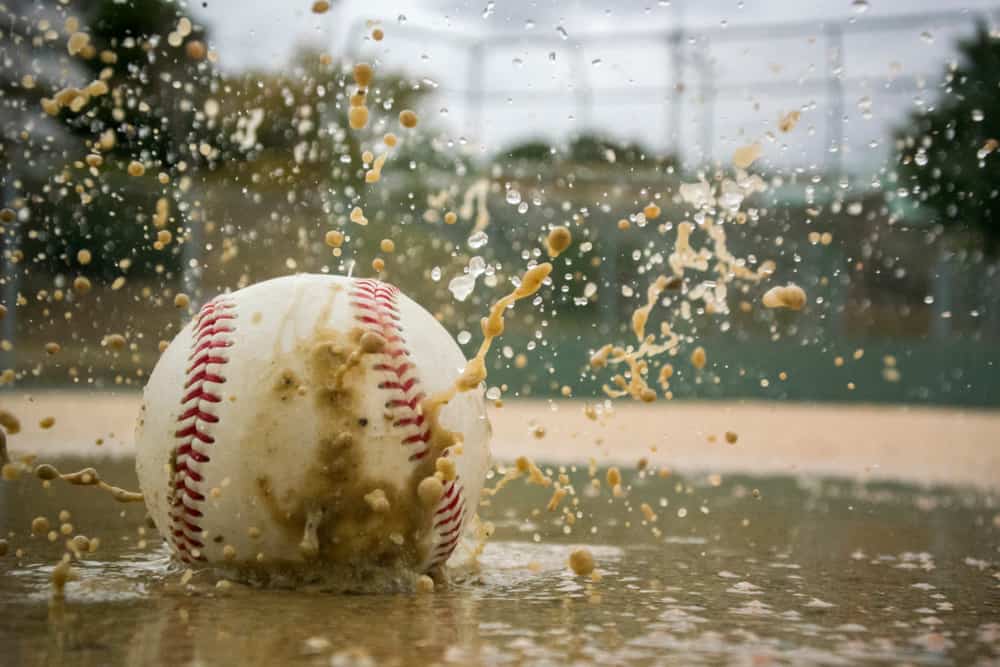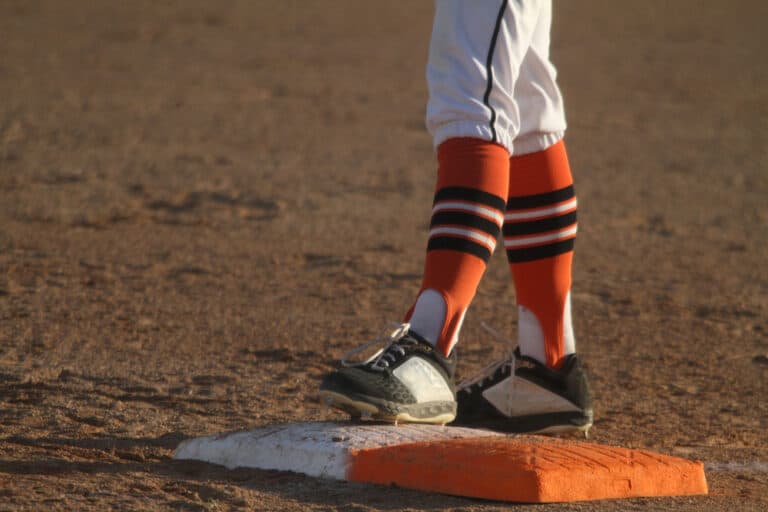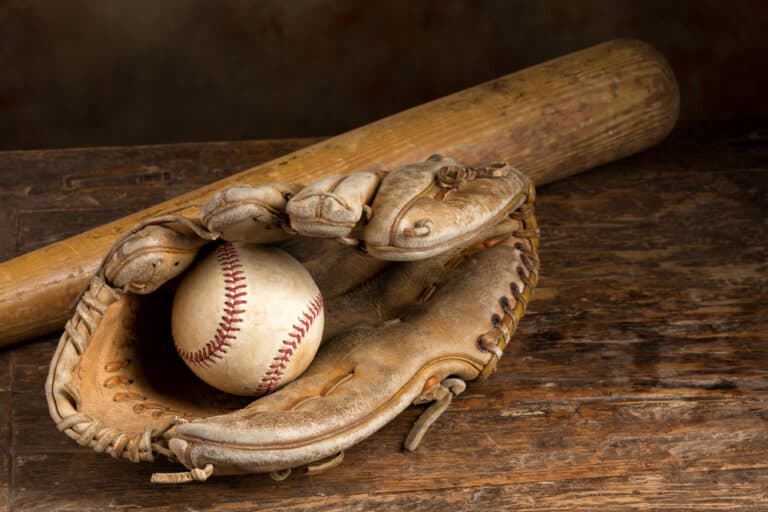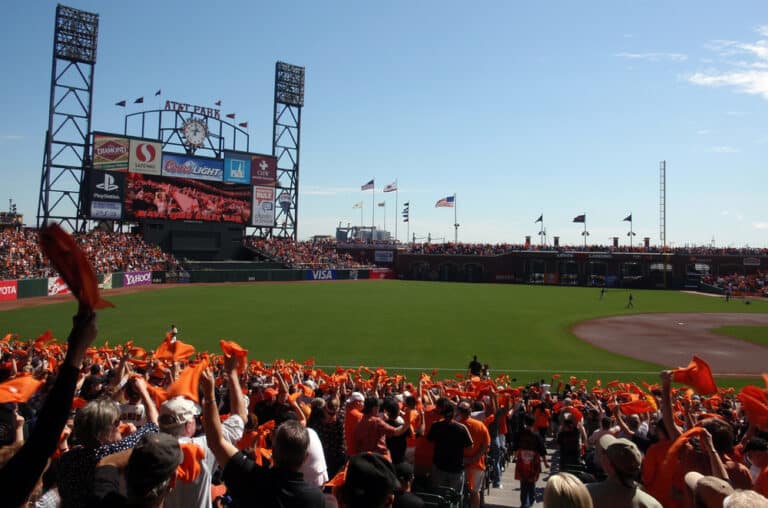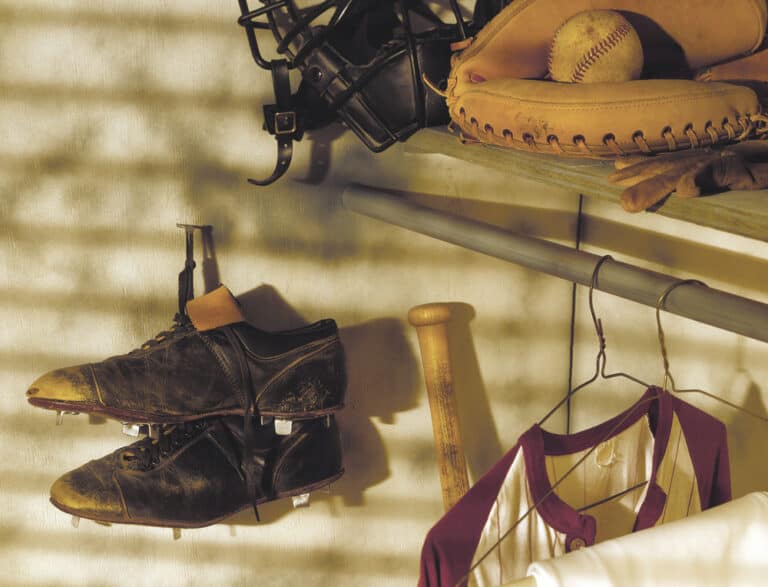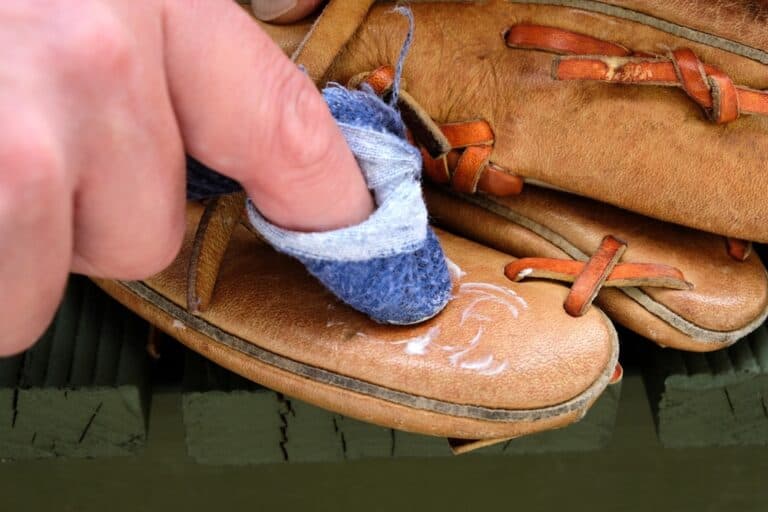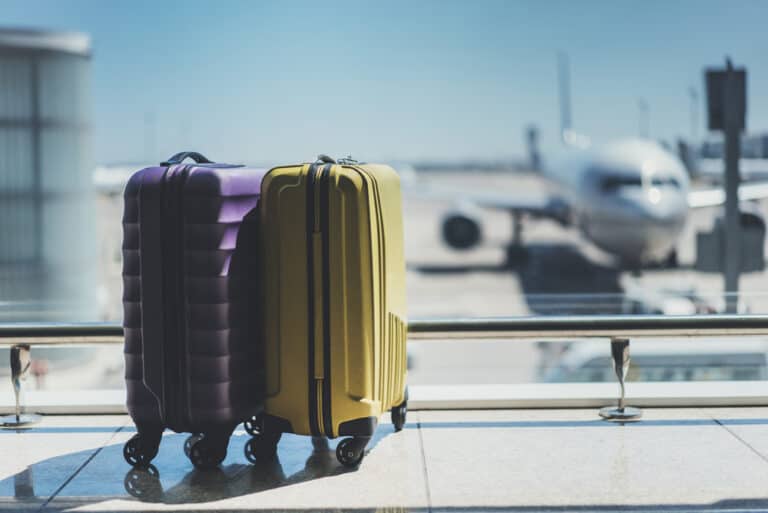Do Baseball Players Play In The Rain?
On August 17, 1920, Cleveland Indians player Ray Chapman was hit in the head by a ball and died 12 hours later. While helmet technology has massively improved since those early games, the regulators are constantly refining the rules to reduce the danger for players, officials, and spectators alike.
Baseball players will play in a light rain that does not reduce visibility or make the pitch unplayable. If the rain continues, the umpire will generally delay the game, and should it carry on for more than thirty minutes; the game will most likely be stopped and replayed at a future date.
Rain has a more significant impact on the baseball field than most other sports. Since much of the field is comprised of dirt, rain turns it into mud and can make it nearly impossible to run on, so in several instances, the baseball field will be covered in a tarp if it rains heavily during a game.
Baseball Players Don’t Play In Heavy Rain
Baseball parks aren’t meant to be played in during anything other than a light rain or snow event.
- The grass and dirt combination of a typical pitch makes the ball movement in rainy conditions uncertain, and therefore injuries become more likely.
- If the pitch or the rest of the field becomes slippery, the risk of a player slipping increases.
- Vision problems associated with rain and fog create new classes of injury risks.
- In normal conditions, the small, hard ball is thrown and batted at over 90mph, making it very difficult to see.
- Add poor visibility caused by rain, fog, or snow, and the difficulty level increases at a compound rate for batters, fielders, or baserunners who will struggle to see where that ball is flying.
- The possibility of reduced visibility and the slippery ball will increase the risk of batters being hit. At this point, it quickly becomes a very serious risk, so the rules clearly state the conditions under which a game may be continued, delayed, or stopped completely.
In Major League Baseball, injuries can cost teams millions of dollars, so it would be unwise to attempt to play the game during any significant weather situation or when the field is exceptionally wet.
The rules regarding rain delays and rain stoppages are as follows.
Rain Delay and Rain Stoppage Rules
The rain delay rules differentiate between a game which has met the criteria of being an official regulation game or if it is an unofficial game.
A baseball game that has met the criteria of being an official regulation game has passed the following.
- As soon as the visiting team has made 15 outs (five innings), and if the home team is leading.
or
- The home team has achieved 15 outs, regardless of the score.
If a game is stopped before it qualifies as an official game, it is considered a suspended game. In this instance, it will be continued at a date in the future, and it will be started at the same at which it was stopped.
Before the 2020 season, if a game was stopped due to rain, it was restarted from scratch when it was restarted at a later date.
If the game is stopped after it meets the criteria of being an official regulation game, then the results will stand and be deemed the final outcome.
In terms of the spectator tickets, if a game is suspended before it becomes an official game, then free tickets are required to be issued, or the ticket holder can choose any other available game of their choice.
How Are Rain Delays Determined?
Until the lineup cards are submitted, the home team manager has full decision-making authority regarding whether the game should be played.
Once the umpire receives the lineup cards is point when the umpire assumes all responsibility for delaying or for canceling the game.
When delaying or stopping a game due to rain, the umpire is the final arbiter.
The main factor used to decide is the safety of the players and spectators. If the umpire deems it safe to continue in light rain conditions, he is authorized to make that decision.
Equally, if the umpire decides that the rain condition poses a clear danger to the players, he is permitted to delay or completely stop the game.
The Difference Between Rain Delays And Rainouts
A rain delay happens when a game is postponed due to rain. For as long as there is hope that the game will be restarted, the status of the game remains as “delayed.”
Once the game is called off, this is considered a rainout. At this point, the rules for official and unofficial games come into play.
The general rule followed by most umpires is that a rainout is called once it has been raining for over thirty minutes. It is not a hard and fast rule, and umpires may vary the timing when calling a rainout if the rain causes the pitch conditions to become dangerous.
The infield is made from dirt and not grass; allowing the game to continue with the rain falling would create the following situations.
- Drastically change the way the surface is played.
- It would constitute an injury risk.
- It would require major repair efforts.
Remember, the tarp, laid out to protect the pitch, only covers the infield and not the rest of the pitch.
Lightning Delay
If there is active lighting activity or a strong chance of lightning, a delay or suspension will be called.
Once again, if the lightning conditions lift within a reasonable time and it is considered safe to continue playing, the game will be continued.
If there is a chance of danger from the lightning, the game will be suspended and continued at a later date.
Fog Delays
Fog conditions normally occur in the early morning and will therefore be known about before the start of a game and will generally only result in a delay rather than a stoppage.
If the poor visibility is caused through the mist, or very low cloud cover descending onto a pitch, it will generally also be accompanied by rain. At that point, the normal rain delay/stoppage rules will affect.
Snow Delays
In some states, snow is a distinct possibility during the early and late baseball season.
The meteorologists are generally able to predict snowfalls; in this instance, the game will be postponed to a later time.
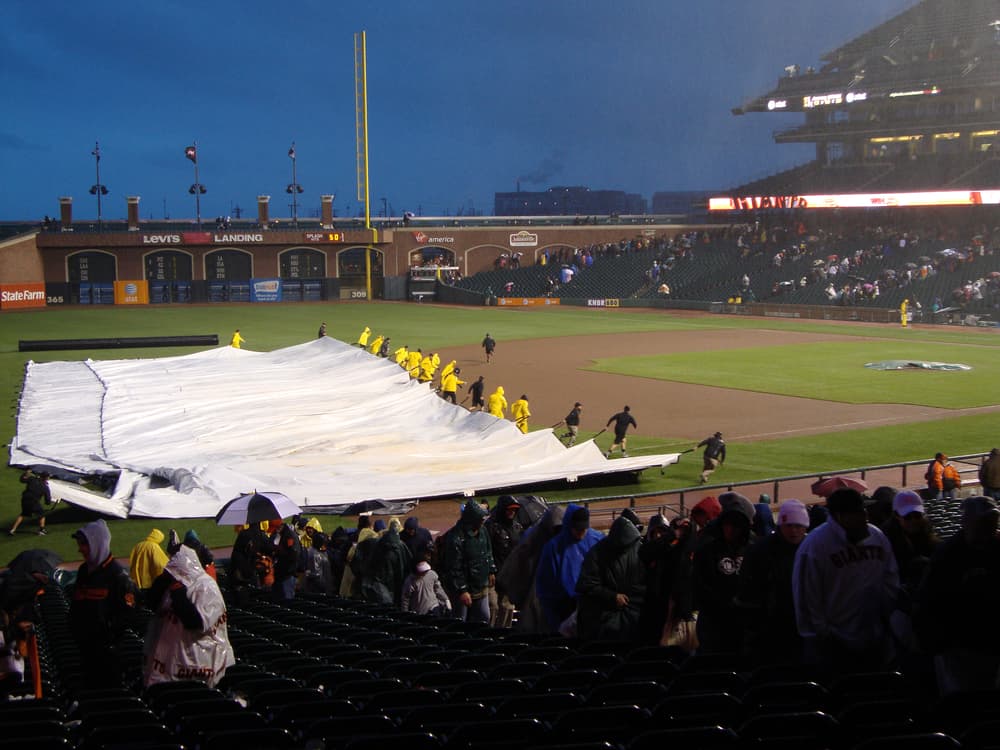
Conclusion
The regulators must perform a difficult balancing act to keep baseball popular amongst fans. On the one hand, they have to keep a game running with, hopefully, as tight a score as possible while simultaneously enduring the safety of all concerned parties.
They achieve this by imposing comprehensive regulations relating to weather occurrences. When the safety is compromised, the game is called off and postponed to a later date.

